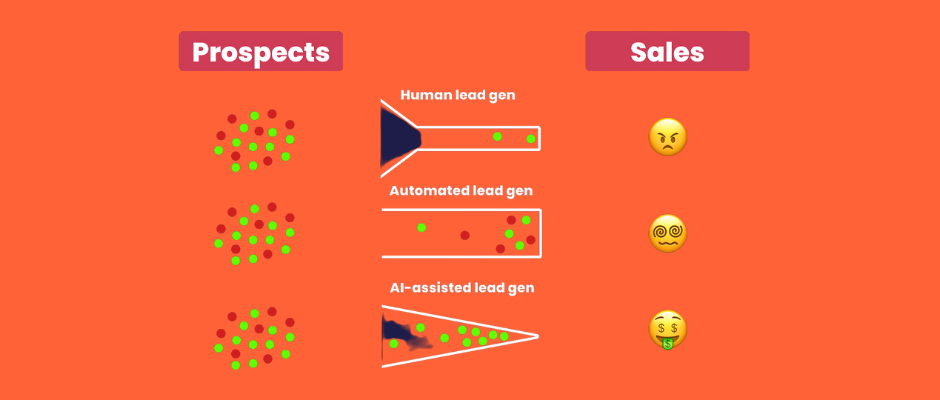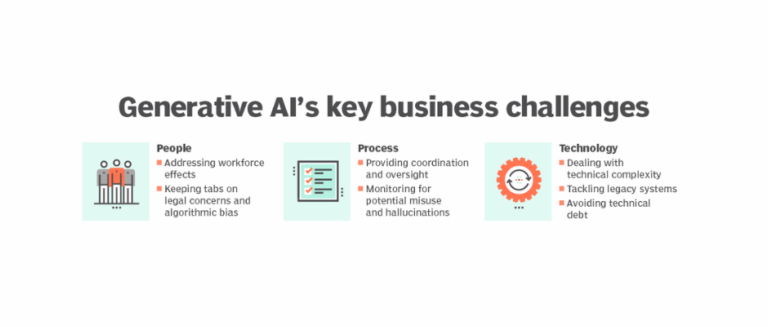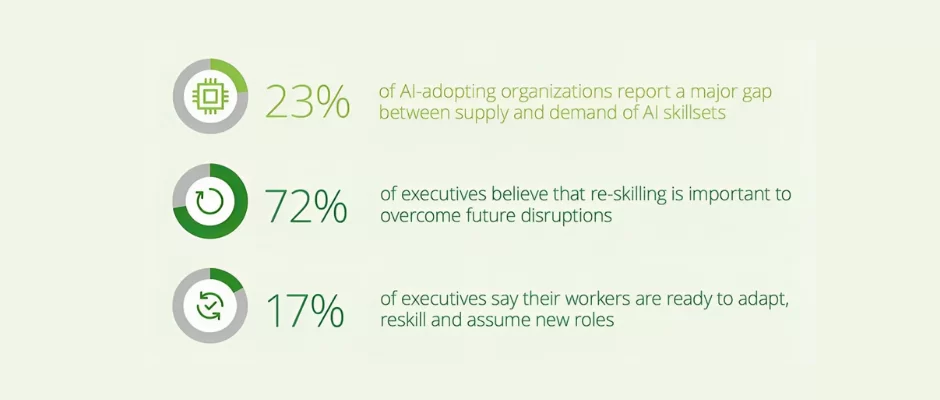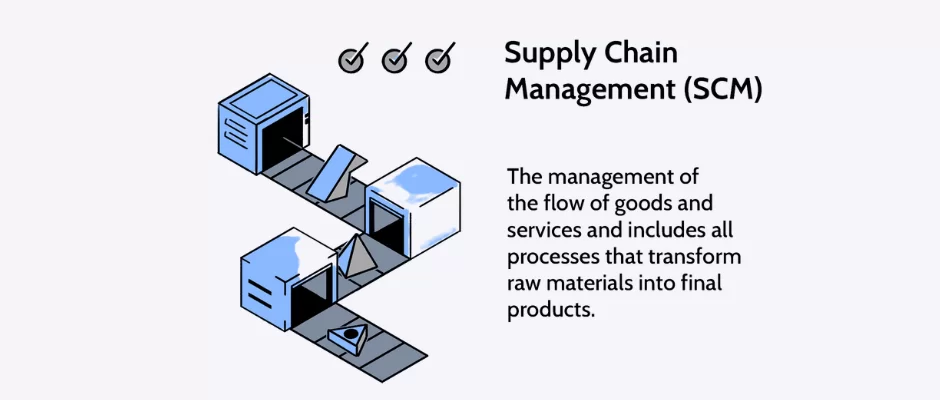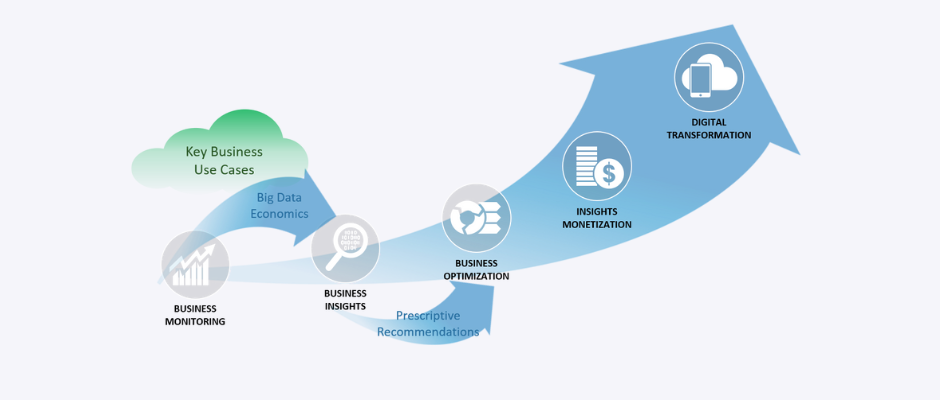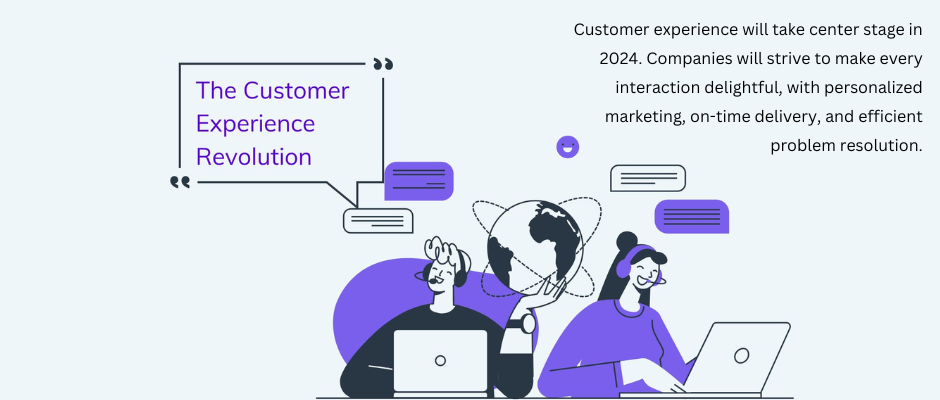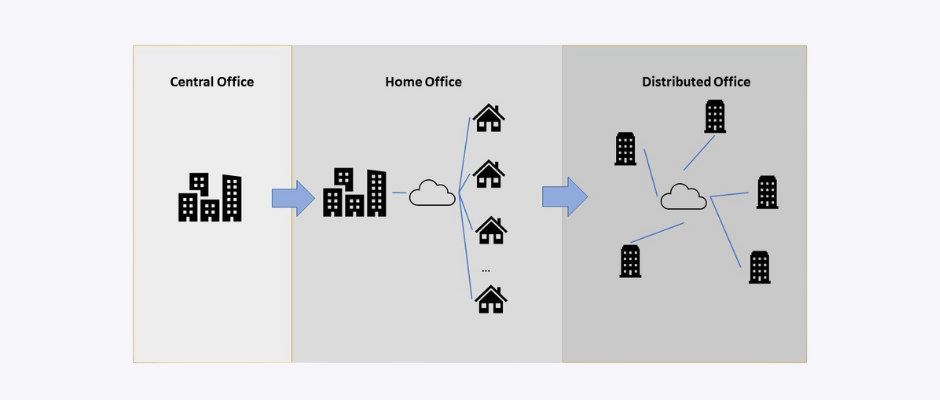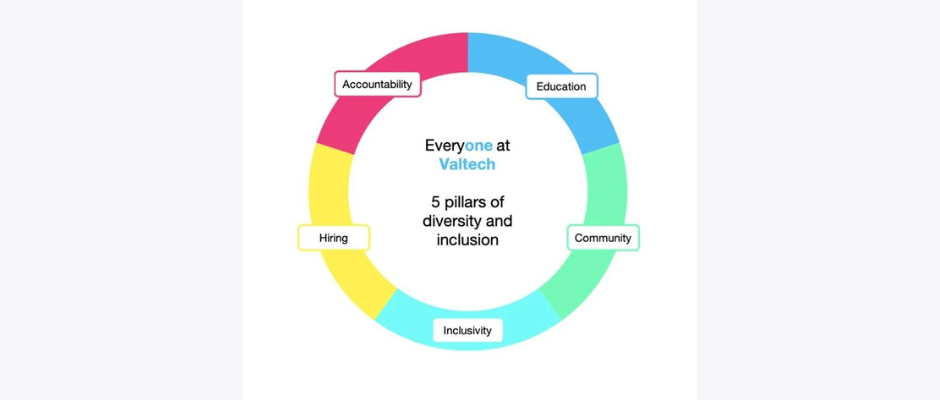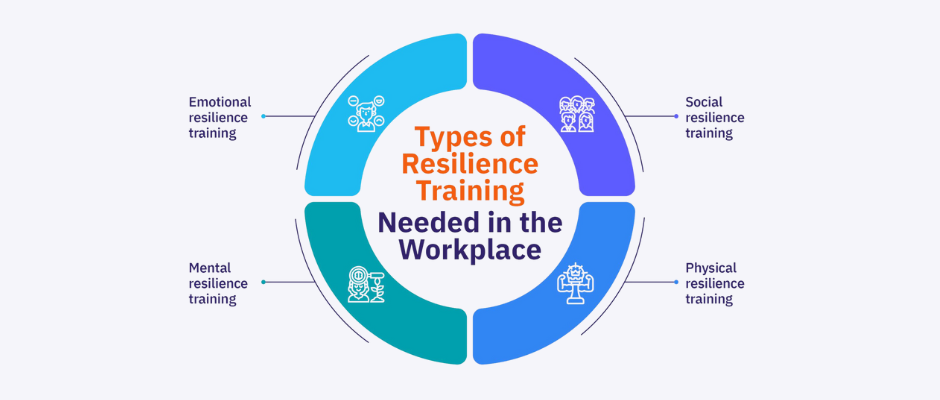AI For Sales Prospecting: How To Leverage Your Sales Pipeline In 2024
Sales prospecting is vital to a company’s successful sales process. Sales prospecting is the process of identifying, analyzing and connecting with new potential customers (prospects) to generate new revenue. With the rapid advancements in machine learning and natural language processing, AI technologies have disrupted the sales process and it’s worth it in terms of lead generation and sales forecasting. In this article, we delve deeper into how AI transform the sales process.
Generative AI for Sales Prospecting
Generative AI is a subset of artificial intelligence that focuses on training models which can generate a wide range of data such as images, audio, texts and 3D models based on the existing patterns and data. Generative AI is the game changer in sales prospecting. It uses machine learning algorithms to generate data-driven insights to identify potential leads.
By analyzing large datasets, GenAI can learn patterns, preferences, and behaviours of prospects, enabling sales teams to craft personalized messages to focus on leads that are most likely to convert.
How Generative AI Shapes the Sales Process
Based on a recent survey of salespeople, most of them use AI for the following areas in sales prospecting,
1. Content Creation
Generative AI tools like ChatGpt can help the sales team with creating high-quality content, such as blog posts, whitepapers, and reports, which can be used as valuable resources during the sales process. Creating high-quality content can help the sales team to attract, engage and nurture potential customers throughout the sales funnel. Sharing informative content builds trust with prospects and enhances your brand reputation.
2. Customer Relationship Management Systems (CRM) Integration
Customer Relationship Management System empowers the sales team to manage, track and leverage data insights to identify potential customers and convert them into leads. CRM automates the sales process by sending follow-up emails, outreach reminders and uncovering trends and customer pain points to prioritize high-value leads.
3. Customer Segmentation
Generative AI helps the sales team with customer segmentation. Generative AI can process a huge amount of customer data to understand and identify the patterns, preferences and behaviours of potential customers. These insights assist the sales team with crafting customized strategies and personalizing messages which make the sales process more ease.
4. Data Enrichment
Generative AI can automatically enrich existing lead data with valuable insights. These AI tools enhance the prospect data by removing duplicates, verifying contacts and providing real-time snapshots of the sales conversations. Analyzing information from websites, social media, and other sources, it can provide a more comprehensive and up-to-date profile of potential prospects which helps the sales team with effective prospecting and outreach.
5. Natural Language Processing
In the context of sales prospecting utilizing the Natural Language Process (NLP) model can analyze customer feedback, reviews and social media comments to assess customer sentiments and potential opportunities. These insights help sales experts personalize outreach messages to resonate with their target audience. For example, Chat GPT can assist in generating personalized emails or messages by analyzing customer interactions.
6. Predictive Analytics
Generative AI can analyze historical data to identify patterns and trends, enabling sales teams to make data-driven decisions. It can predict which leads are most likely to convert, helping sales professionals develop and optimize their sales strategies and allocate their resources effectively.
7. Chatbots
Chatbots can help you engage customers by providing instant responses to their inquiries and moving them through the sales journey. You can integrate chatbots on websites or social media platforms to engage with potential customers and collect their information. These chatbots can ask qualifying questions, gather information, and even schedule meetings with prospects when they meet specific criteria.
8. Sales Automation
The main advantage of Generative AI is it automates repetitive tasks such as data entry, follow-ups, reminders, and email templates. For example, sales professionals spend more time on developing proposals and emails but Generative AI eliminates these tasks and allows sales professionals to focus on other aspects of building a long-lasting relationship with customers and closing deals.
Advantages of utilizing AI in your sales prospecting efforts
1. Improved Efficiency and accuracy
AI assist you in analyzing a large data set of your prospects and identifying their behaviour, preferences and patterns which are even undetectable by human sales professionals. These insights help the sales team to improve their sales process more efficiently and focus on highly convertible prospects. Moreover reduces the time for repetitive tasks such as data entry, lead scoring, and follow-up emails which increases productivity and efficiency.
2. Data-Driven Decision Making
AI provides you with data-driven insights which give a deep understanding of what works andwhat doesn’t. These insights help sales professionals to make informed decisions and optimize their sales strategies and efforts.
3. Enhanced Lead Generation
AI can process vast amounts of data from various sources, such as websites, social media, and previous purchase behaviours, which helps to identify potential leads matching your ideal customer profile.
4. Improved Personalization
AI models like ChatGPT can craft personalized outreach emails or messages with high open and conversion rates. This personalization increases the chances of attracting qualified leads and improving their customer experience.
Limitations of using AI for Sales Prospecting
Although there are numerous advantages to integrating AI within sales prospecting efforts, there are some challenges and limitations which need to be addressed;
1. Data Privacy Concerns: Since AI accesses a large amount of customer data, it’s necessary to have standard data privacy and security measures.
2. Inaccuracy: Sometimes AI can generate inaccurate insights that don’t fit your sales strategy but it’s necessary to cross-check the accuracy of AI output before using them.
3. Cost: Another biggest challenge is the cost of AI tools. Sales teams need to have a separate budget to opt high-quality AI tools and they have to spend more time and effort on researching which tools fit for their business.

AI Tools for Sales Prospecting
Let’s explore some AI tools beyond Chat GPT that can enhance your sales prospecting efforts.
Elevate Your Sales to the Next Level with Generative AI
AI is the future of sales, it has revolutionized the way of approaching sales prospecting and become an inevitable tool for the sales team. While AI offers with wide range of benefits from customer segmentation, personalization, and lead generation to data-driven decision-making, it can’t replace the human element in sales. By harnessing the power of AI, sales professionals can focus their efforts on building meaningful relationships with qualified leads, ultimately driving higher conversion rates and revenue. As AI technology continues to evolve, integrating Generative AI into your sales strategy is a smart move to stay competitive in today’s fast- paced business landscape.


